The Vegetarian Festival in Phuket – Thailand helps prevent illness and death according to popular legend. In 1825 a traveling Chinese opera company, ngiu in Thai orpua-hee in Hokkien dialect, came to perform in Naithu Village, Kathu.
Unfortunately, after a time many of the performers became terribly sick, and they decided that the cure was to eat only vegetables as they had done in China, in an act of contrition or expurgation for the sins incurred by the killing and consumption of animals.
Miraculously the ill members of the group were healed, and so the Chinese immigrants arranged for a Festival to be held again the next year, and every year since.
Thus, many believe holding the Festival helps prevent illness, death and the loss of innocent lives in the community by promoting physical and spiritual recovery through ritual practices that cleanse the body and mind while strengthening the faith.
Festival Preparation
In preparation for the Festival each shrine burns incense sticks to purify the surroundings, bringing forth an assembly of buddhas, bodhisattvas, gods and angels. Thus, driving away demons from the holy grounds.
Most shrines in Phuket conduct a Pangkun Ceremony to represent the sending of one’s soldiers in different directions to watch over and guard the perimeter of the city holding the Vegetarian Festival.
Each direction has a colour defined by a flag. Black for the northern troop, red for southern, green for eastern, a white flag for the western troop and yellow for the royal troop.
On the last day of the 8th lunar month of the Chinese calendar every shrine throughout the island begins to raise a Koteng lantern pole to invite the Jade Emperor Yok Ong Tai Teand the Nine Emperor Gods Kiu Ong Tai Te to attend.
In the evening of the same day, a gong is sounded to remind the people who have joined the Festival that there will be the Koteng Ceremony, and that all are invited. Previous to the raising of the sacred pole devotees spend days covering it in gold leaf.
Emperor God of Nine
There follows a Chia-yokhongsongtae Ceremony to honour the Emperor God of Nine, God of all Gods, or as Brahmanism’s believe, the God Siva.
The nine lanterns hanging at the top of the pole are the residences for the souls of the nine emperor Gods while they visit for the ten days of the Festival.
Because their spirits are so supreme and pure, their souls are being invited to earth but can’t come down any further as the world is full of evil thoughts and behaviours.
Although people observe the 10 strict rules of vegetarians still the world is not clean enough for supreme Gods to touch the ground.
On the 3rd, 6th and 9th day of the waxing moon of the Yin Calendar, food is strictly vegetarian with grass and beans prepared to worship the Ma Song, the holy horses.
Ma Song who have devoted their bodies to the spirits of the soldiers, commanders and generals who serve the Emperors in heaven.

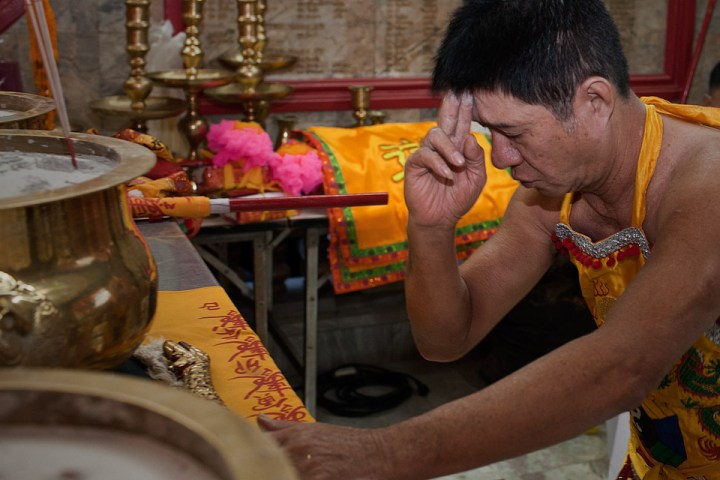
Chinese Gods
Ma Song invite the spirits of the Gods to possess their bodies and use them as a vehicle, as one rides a horse. They use various items to pierce their bodies.
It is believed that the Chinese Gods will protect these people from harm. In the old days they used five sharp irons one foot long, with the handles made as pictures of Gods and to represent the signs of the angel army leaders for the five directions.
These irons were weapons like a halberd and a sword called Ngor-ngia-chian.
For more photos of Ma Song please visit this blog post,
Seven Planets
The Paichidechae or Koychidchae Ceremony honours the seven planets asking for their power to bring good luck to the people who join the ceremony.
A high stage is built for where only the leader medium gods and the ceremony committees may inhabit. A Songkeng asks for power from the planets.
Another ceremony follows to practice magic Hu where an incantation cloth is scattered for people to keep in order to bring good luck for the year ahead.
During the Iewkeng Ceremony the Gods Kiu Ong Tai Te walk the streets of Old Phuket Town and bless devotees with happiness. The sound of gongs and drums ring out to inform people that the procession is passing their way.
Kiu Ong Tai Te is followed by Thaokee, a procession of flags, similar to the process of war.
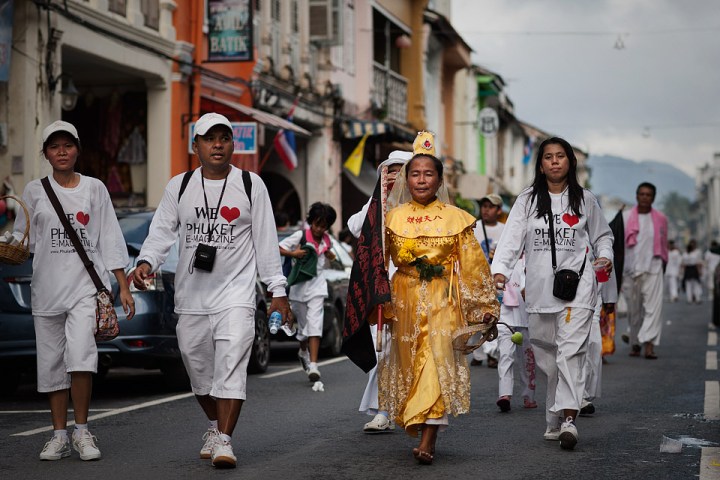
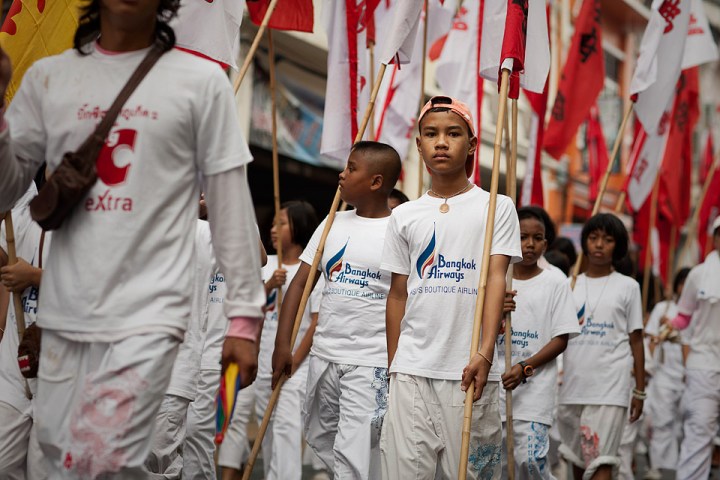
At the tail is a Thaipia procession, or small palanquin. There are many medium Gods who sit on the palanquins and those Gods are generals who control the angel army.
And then there is Tuo-lian, a beautiful palanquin procession in which the Gods Kiu Ong Tai Te sit. When this palanquin procession passes by, people along the road pay respect by kneeling down or sitting in silence, to welcome the king.
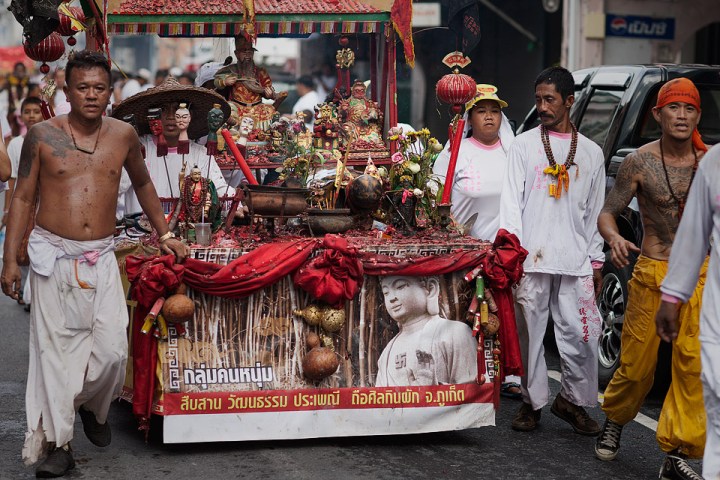
Sources of information and inspiration:
Jia Chai, the Faith Festival of the Phuket Baba (DVD), Phuket Tai Hua Museum.
Kritchaya Na Takuathung, Phuket Heritage Trails.
Please note that not all ceremonies over the 10 days of the festival are covered in this post.

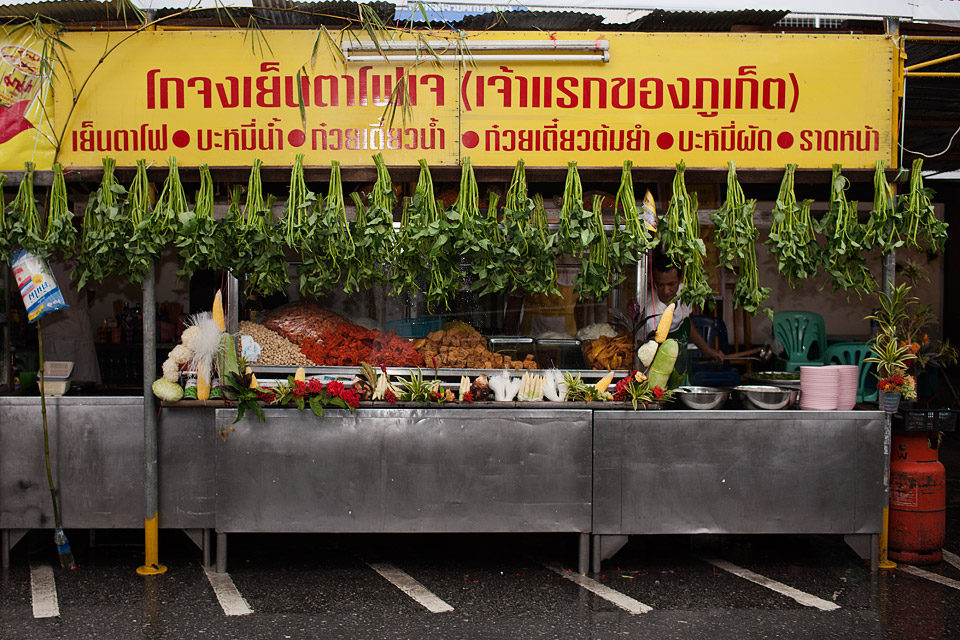
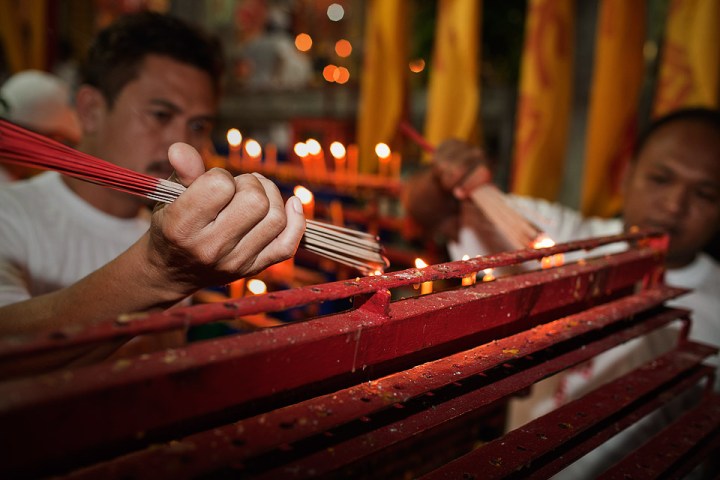
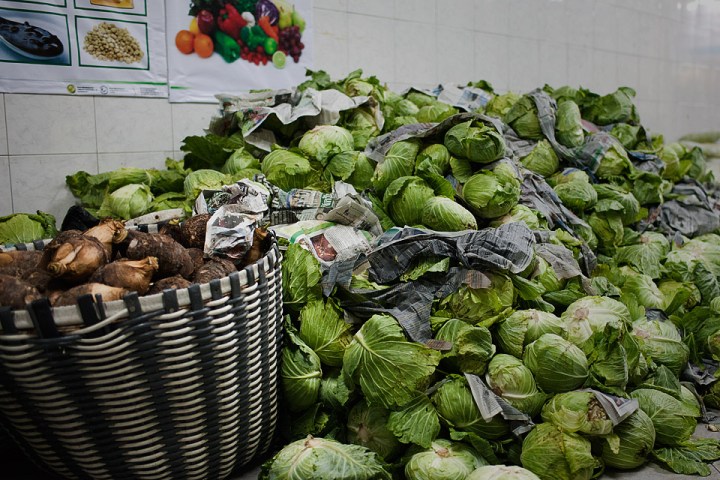
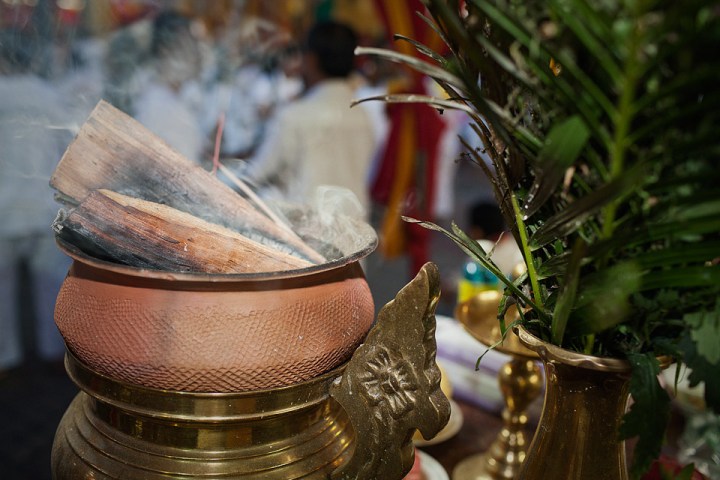
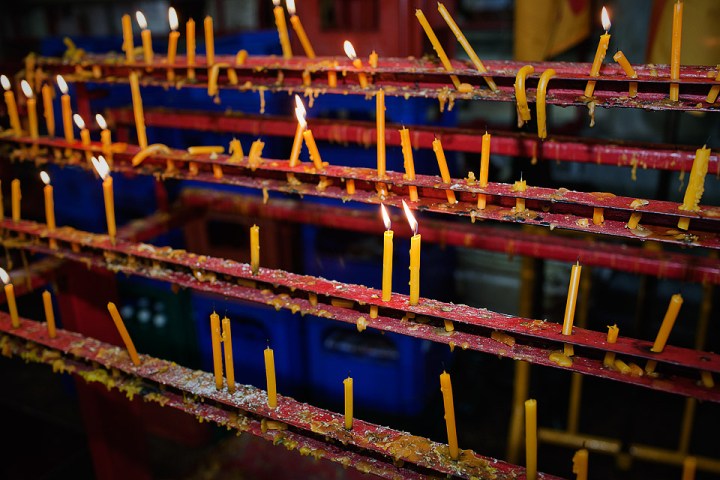
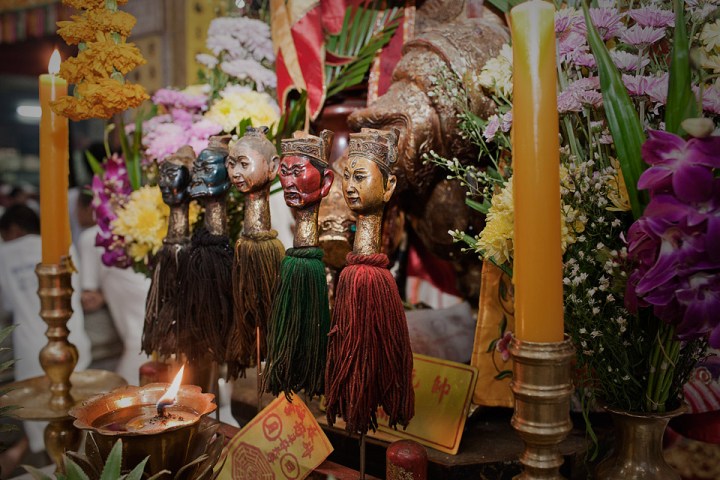
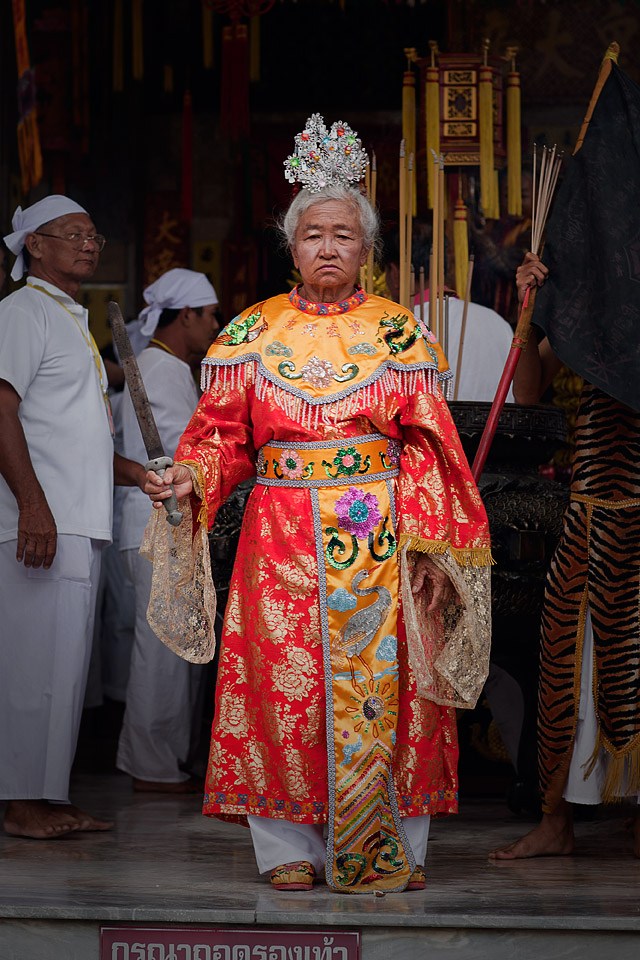
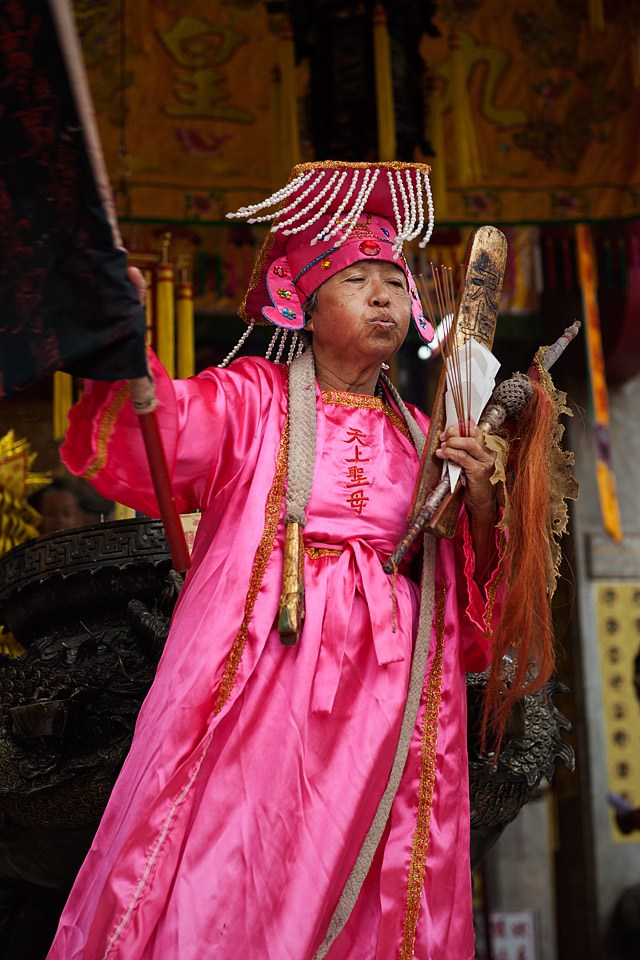
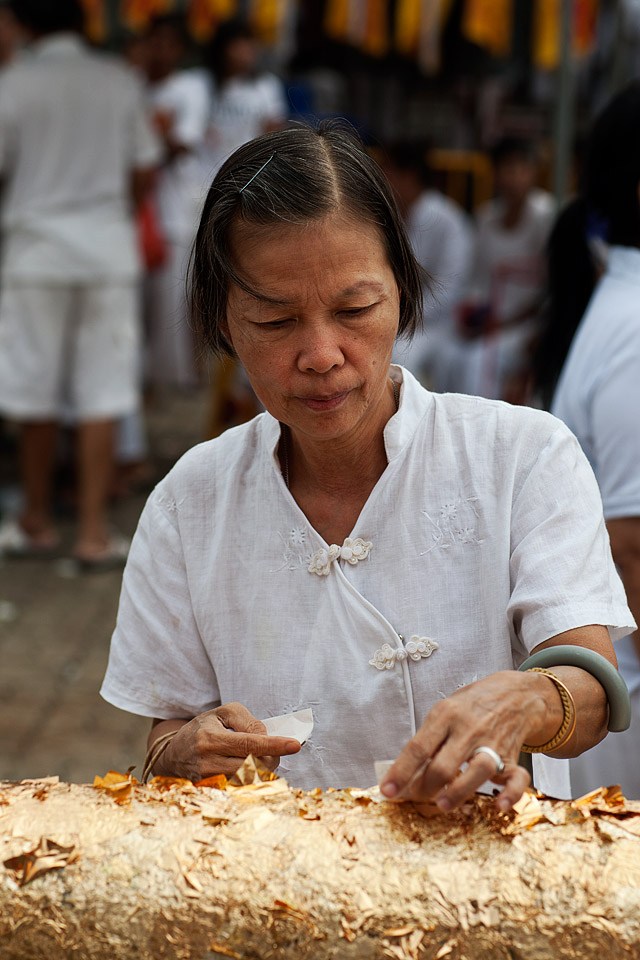
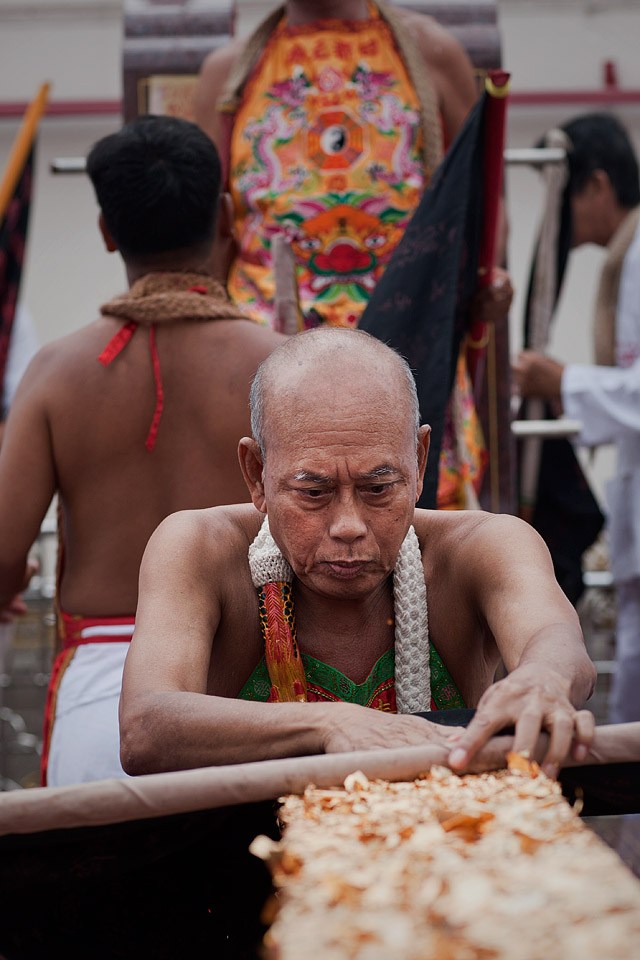
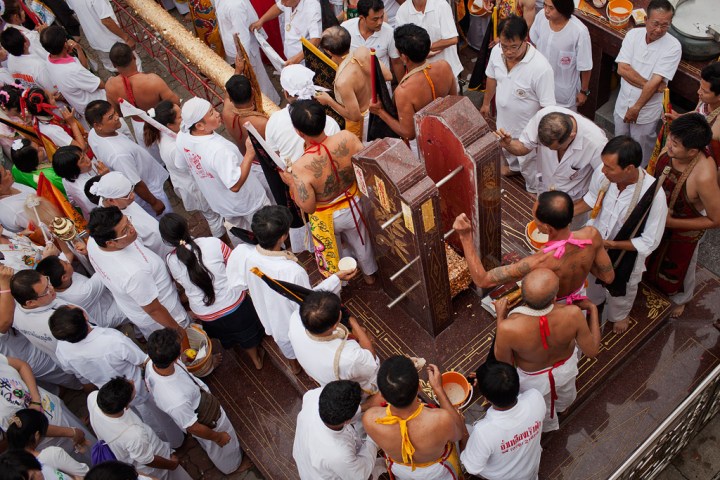
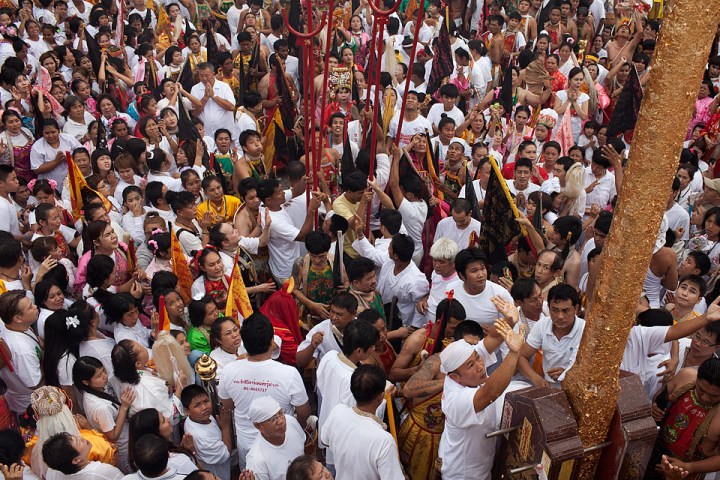
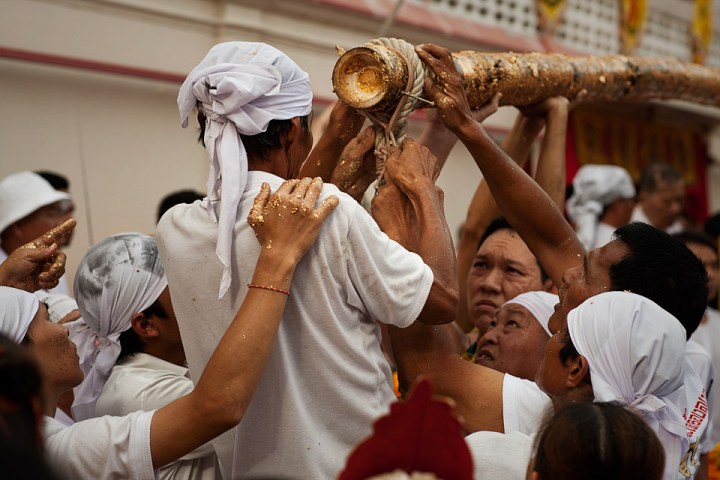
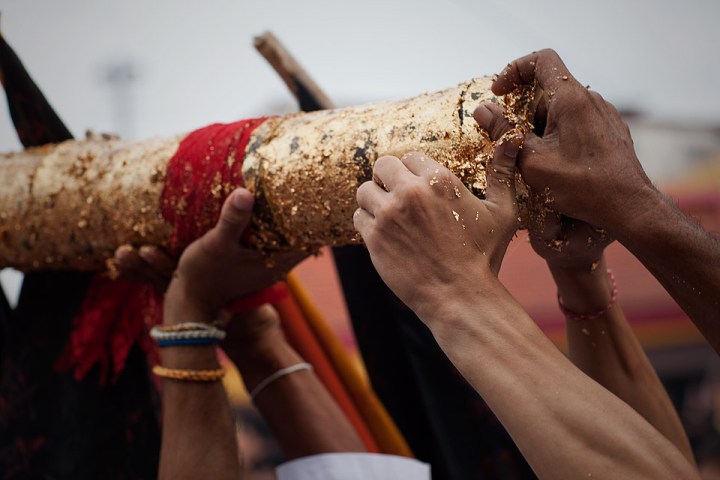
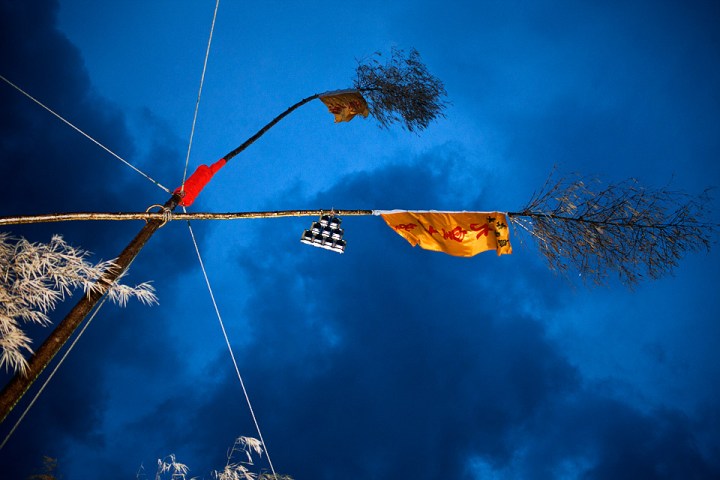
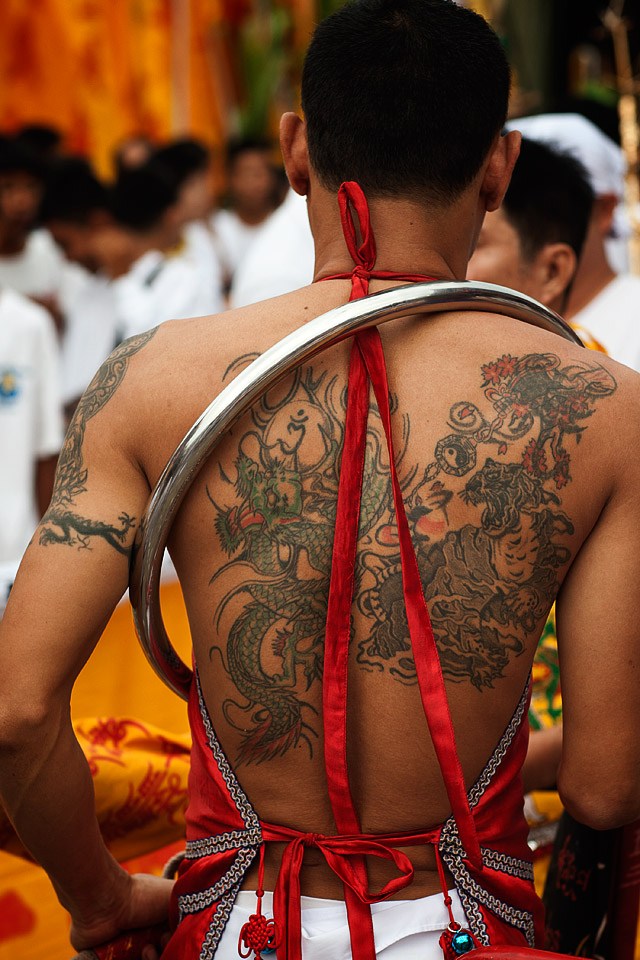
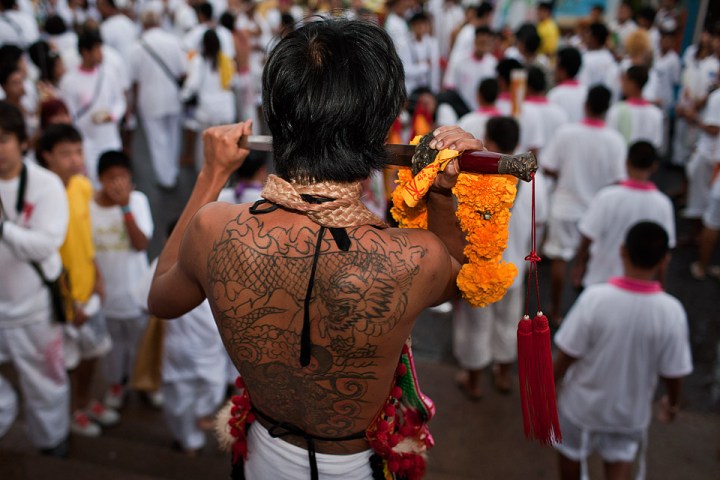
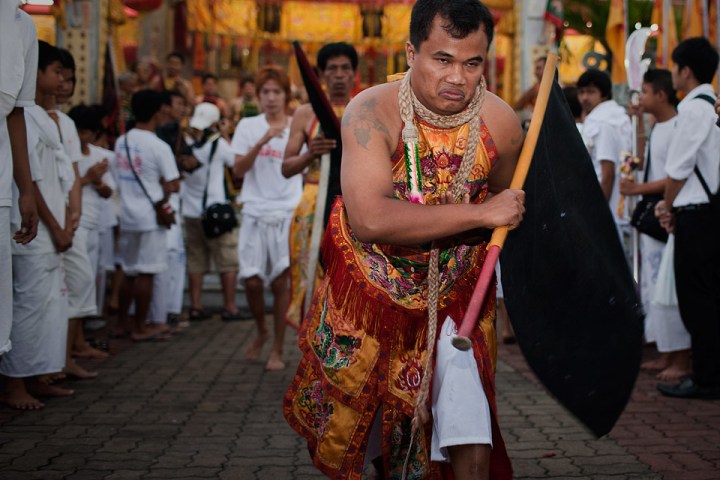
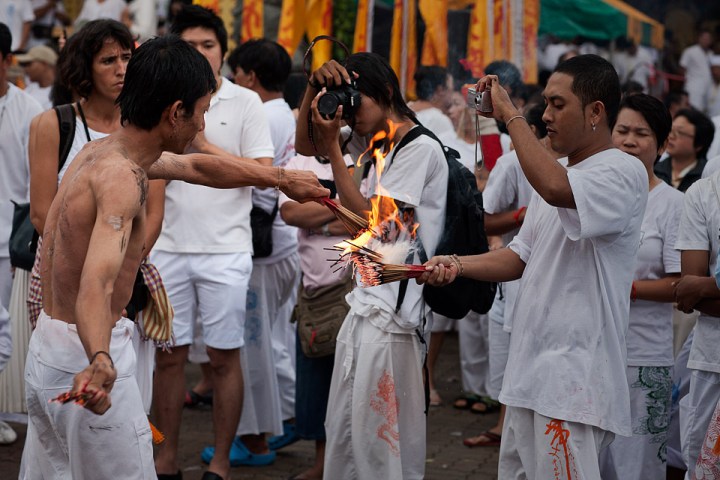
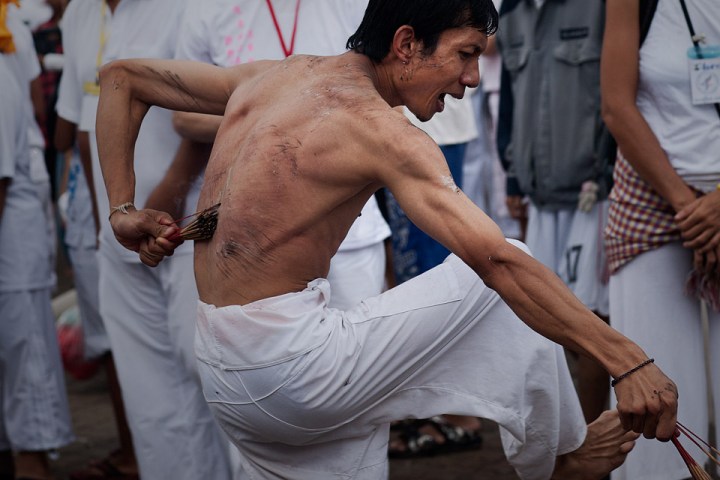
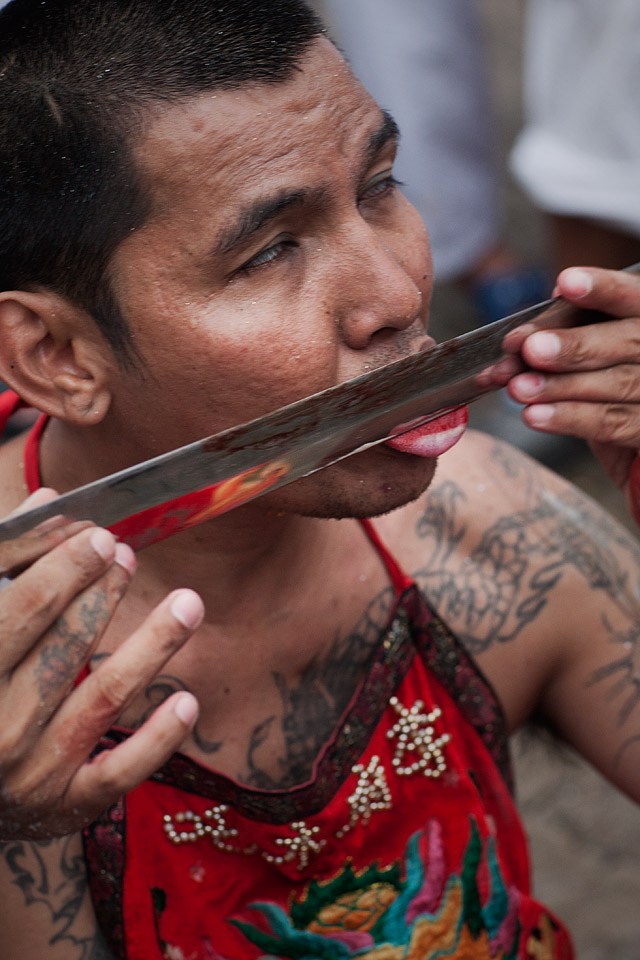
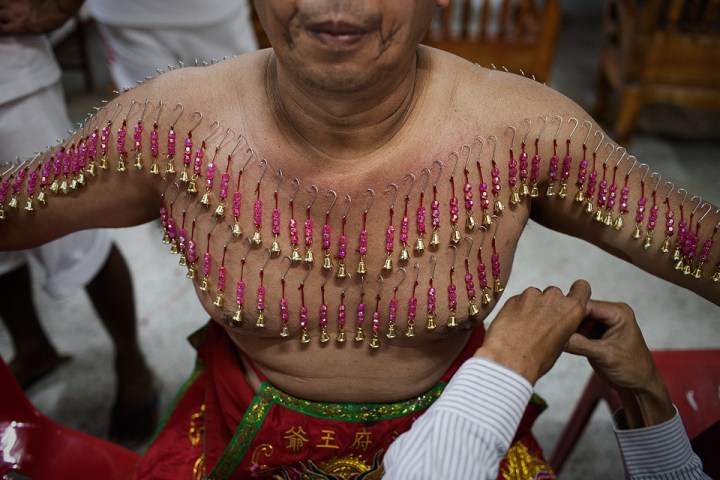
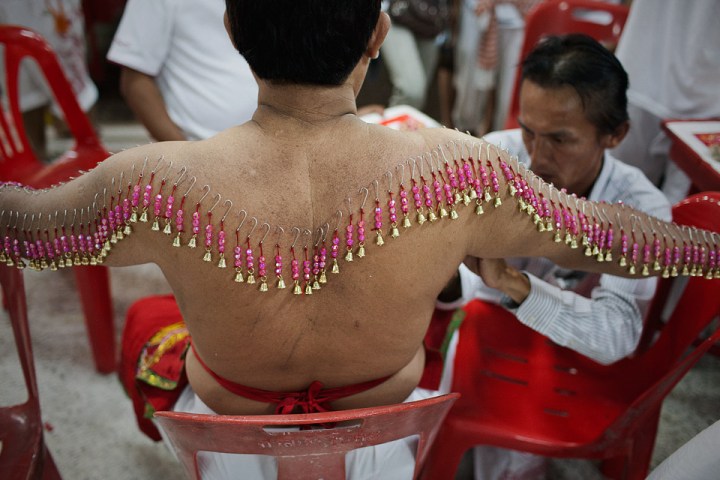
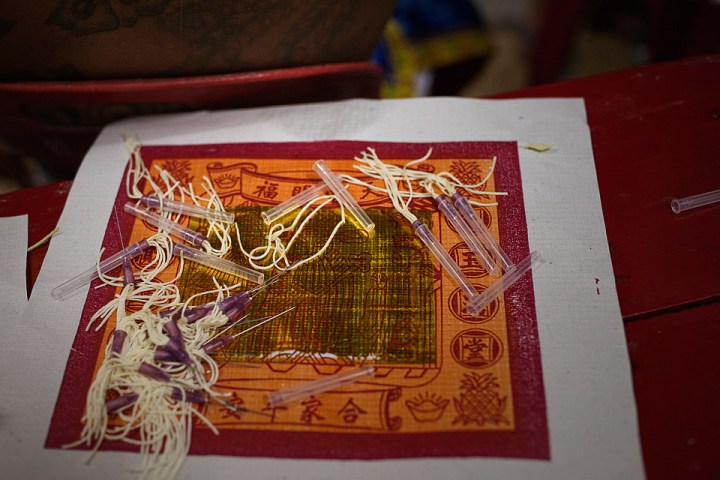
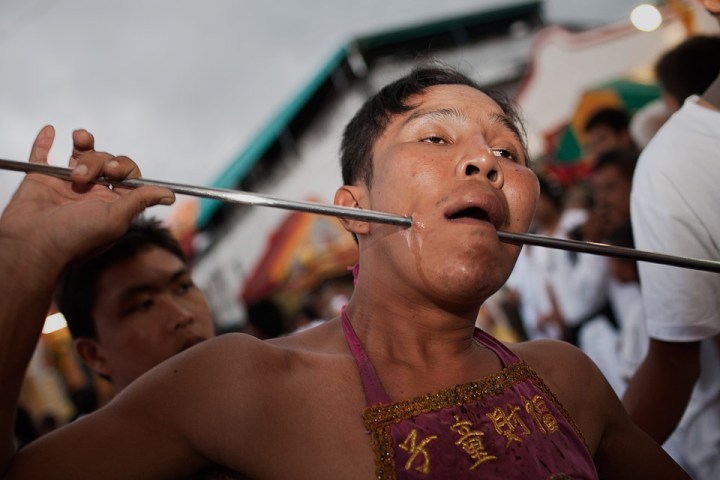
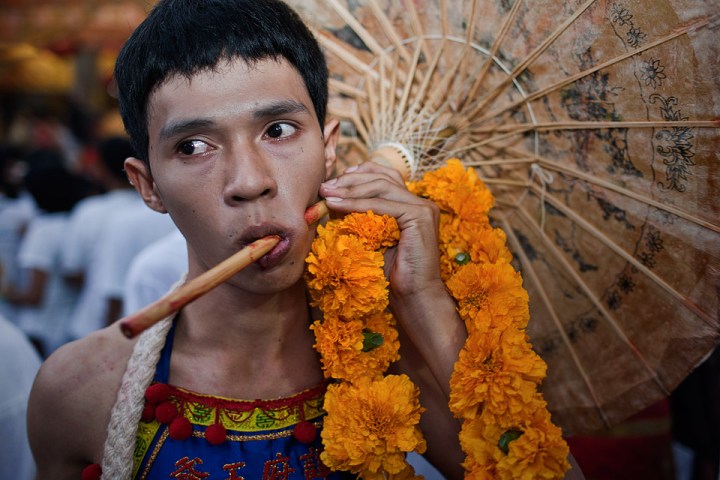
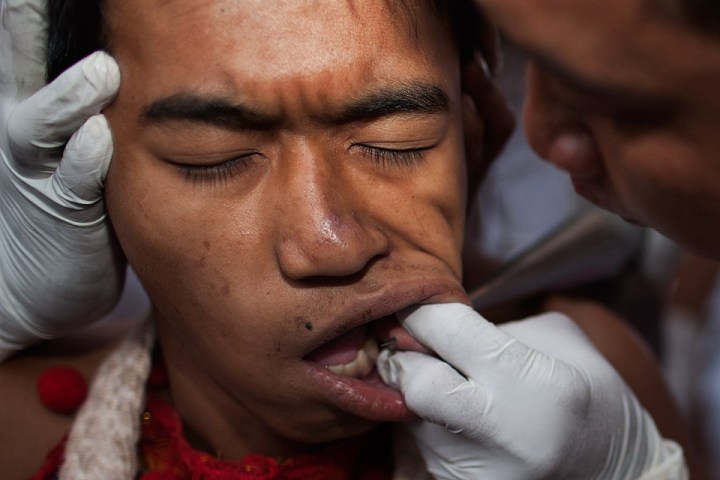
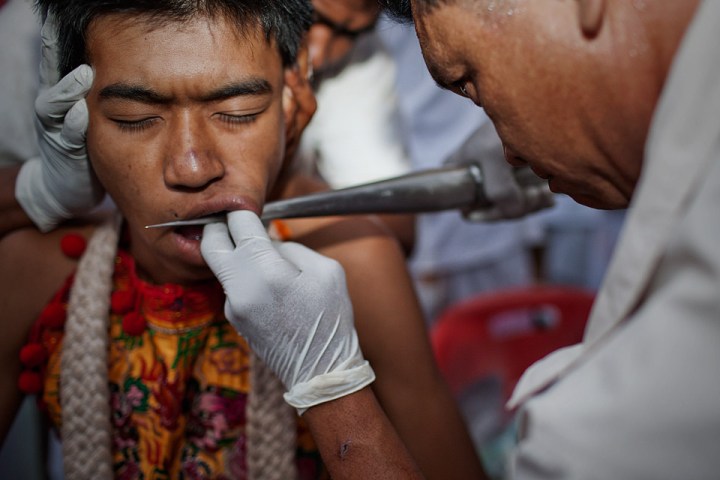
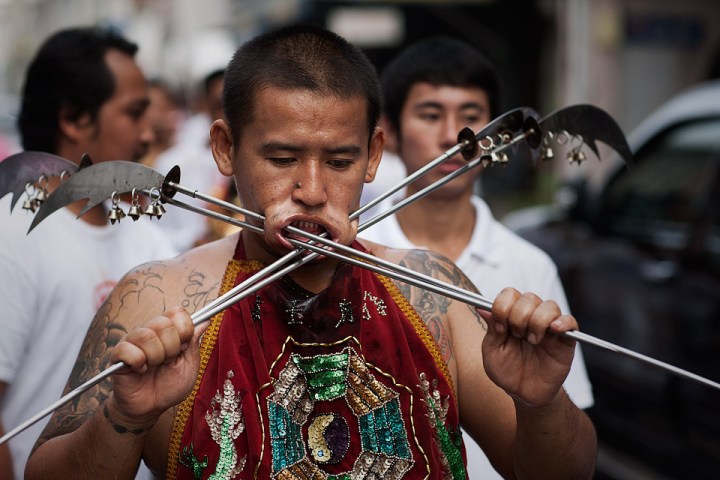
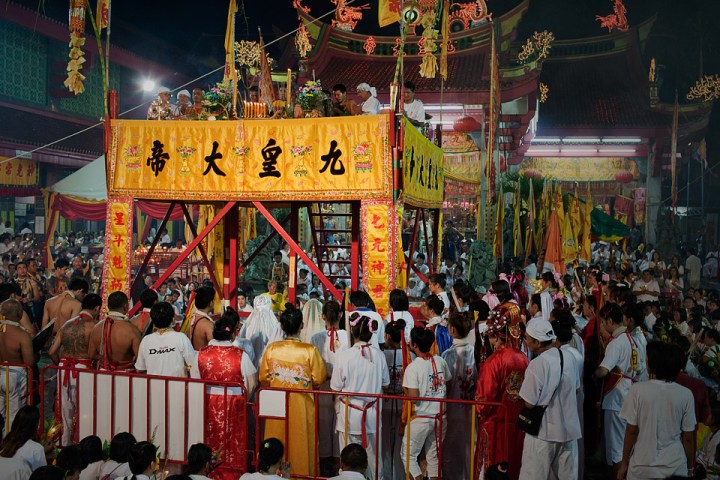
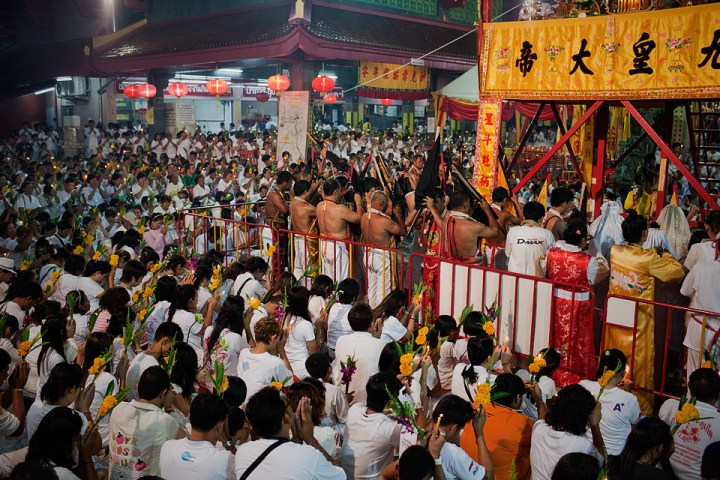
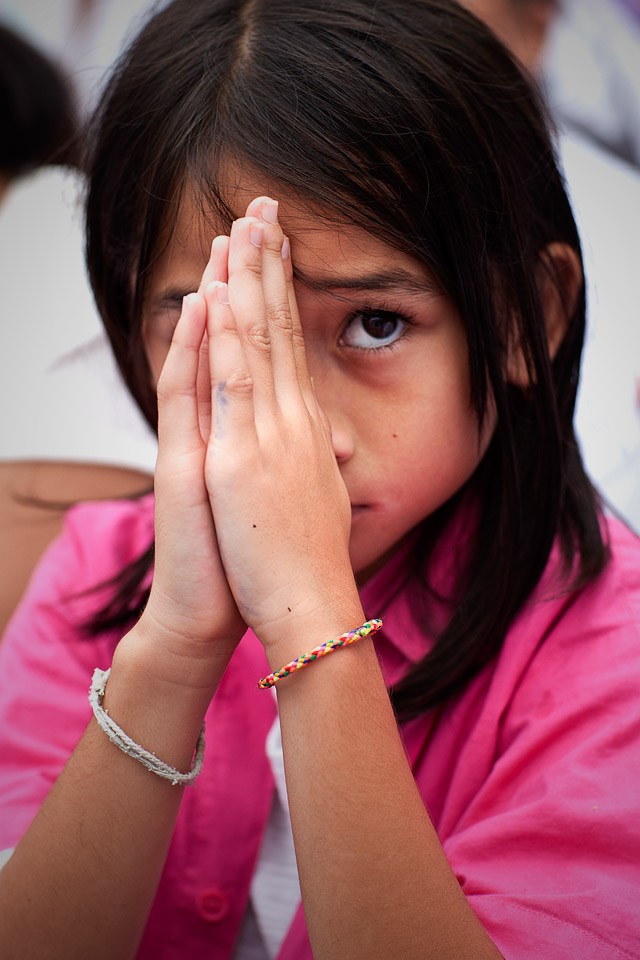
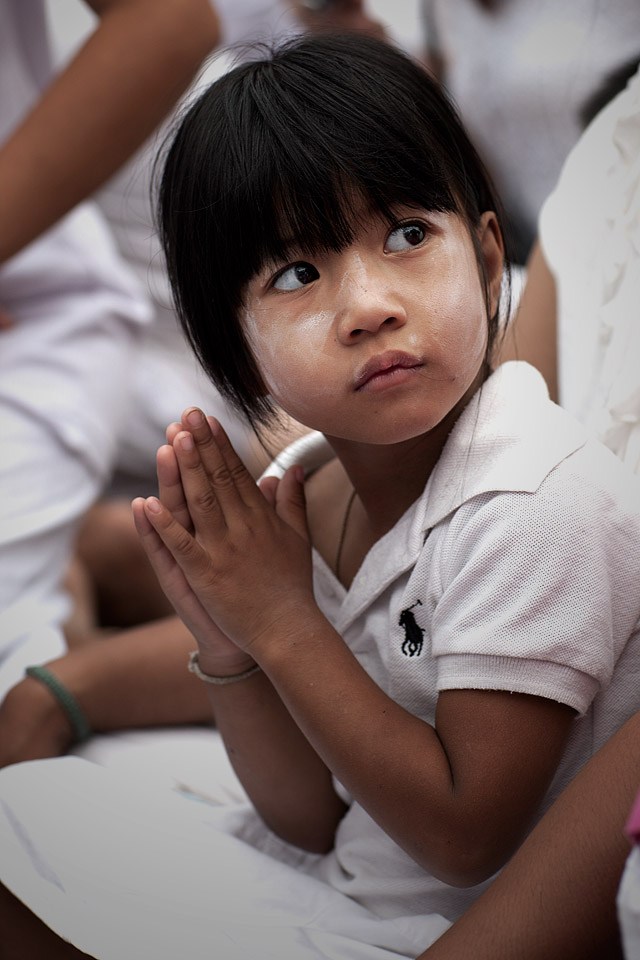
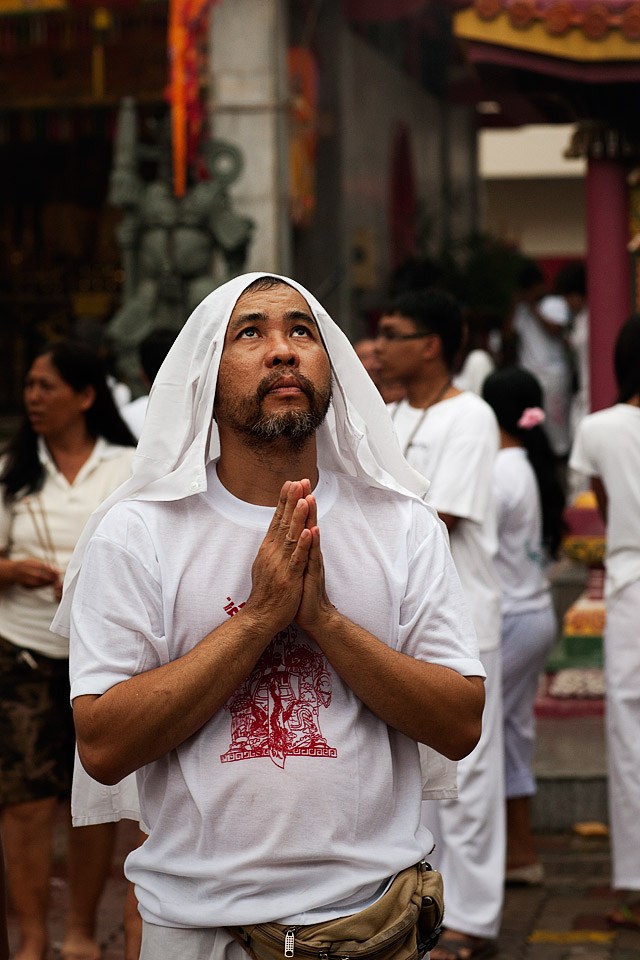
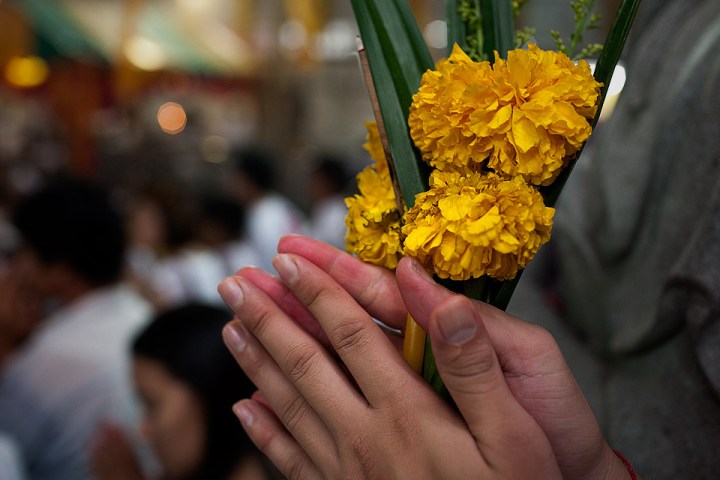
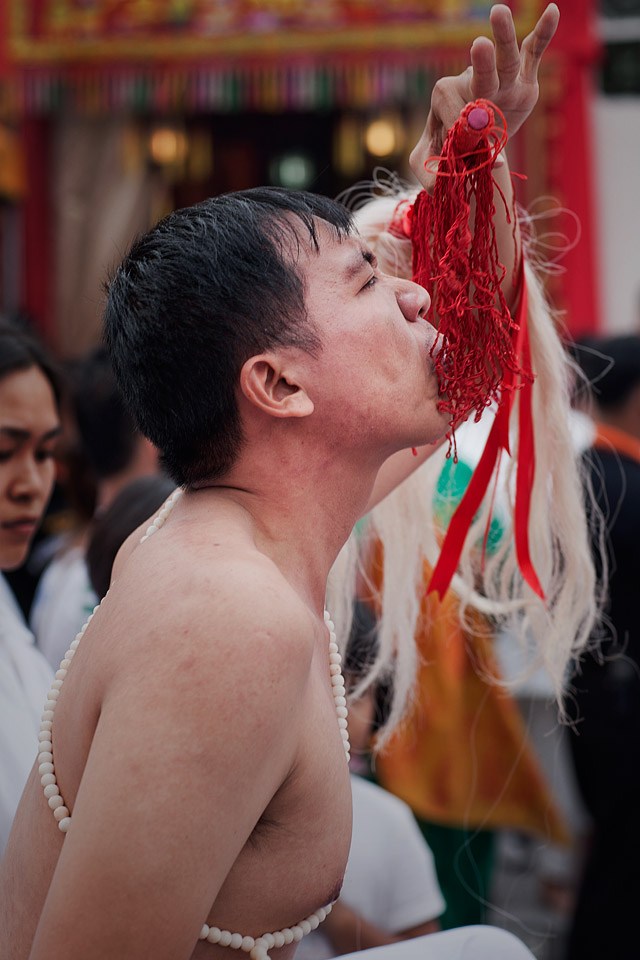
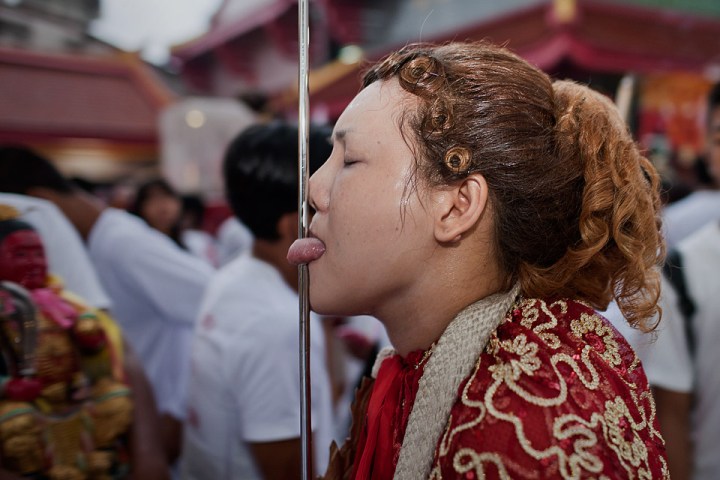
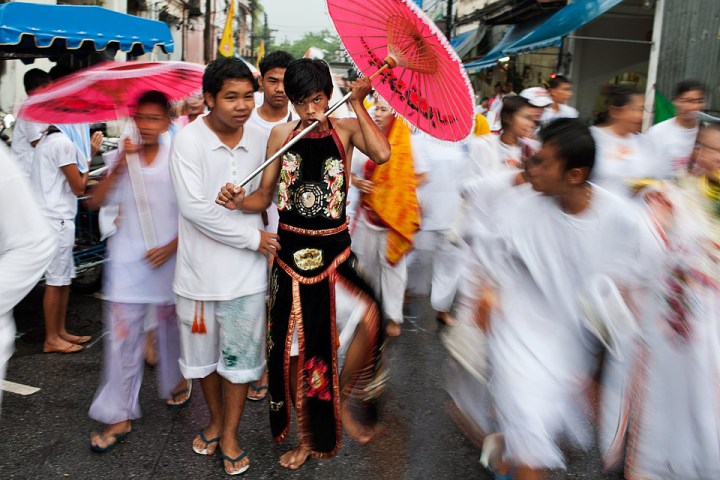
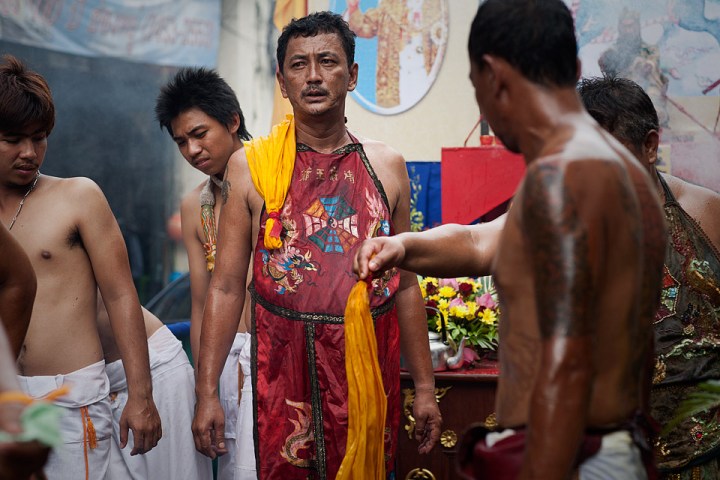
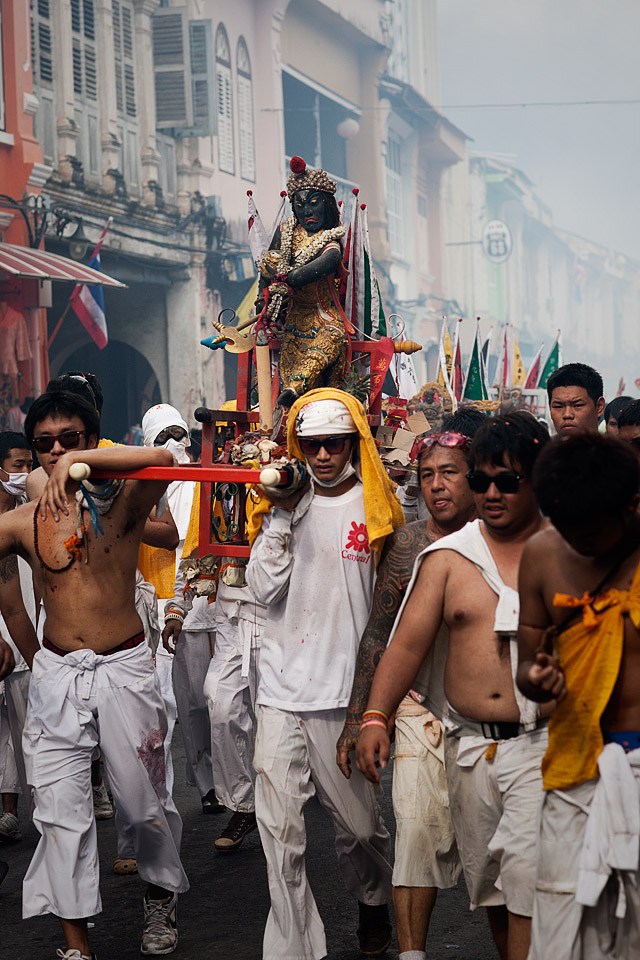
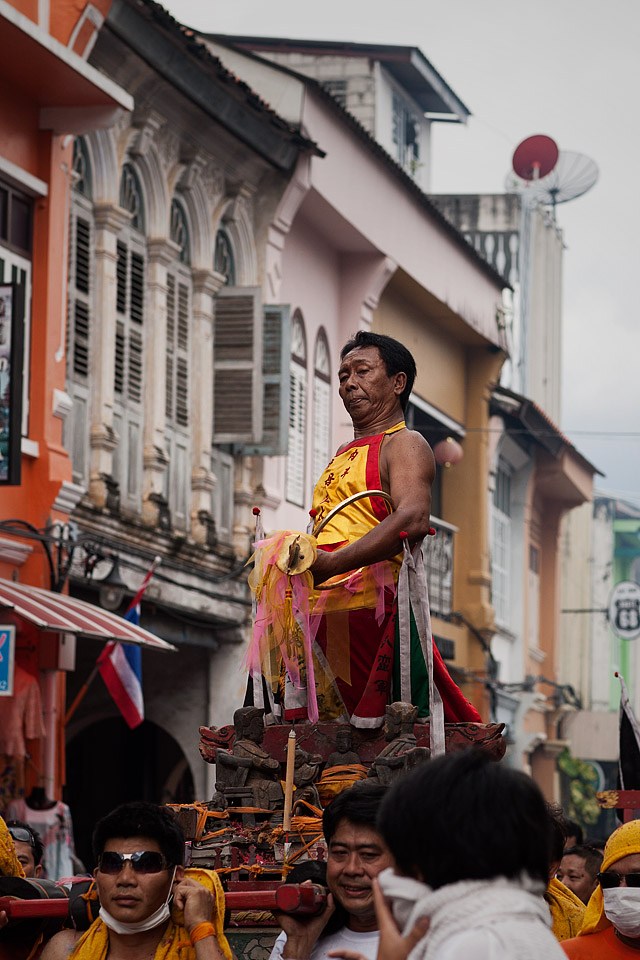
Excellent pictures, I want to attend next year!!
Great post and amazing pictures
Your photographic documentation and information is very interesting thank you.
Very good. Interesting blog posts and refreshing to learn and hear of the hustle + bustle of people of how they live their lives creatively in Kuala Lumpur.
Beautiful photography Tahnia.